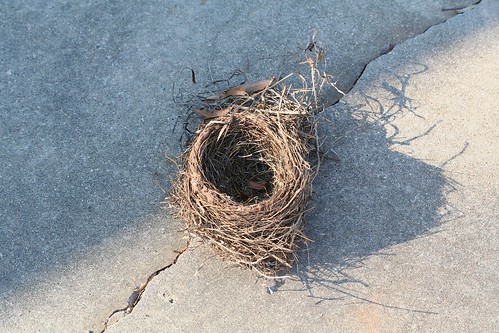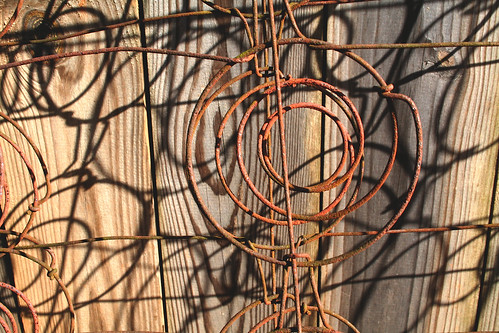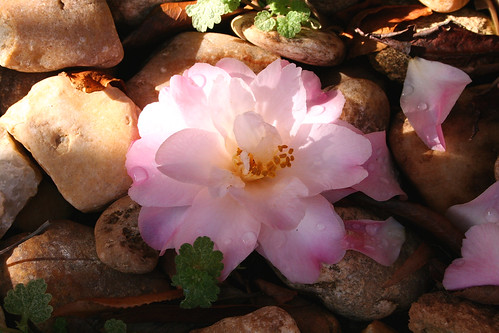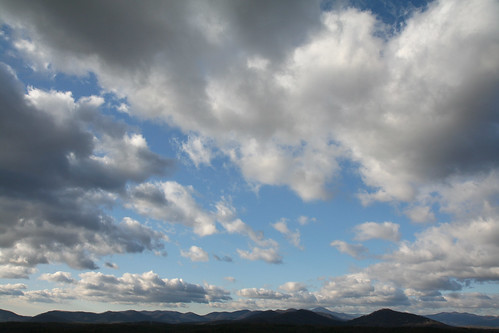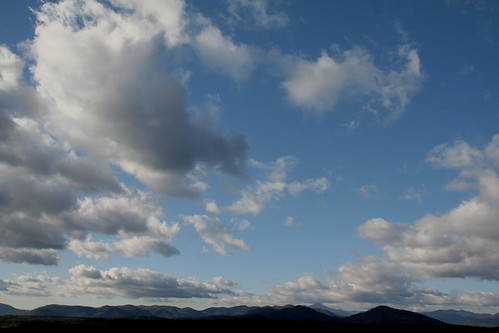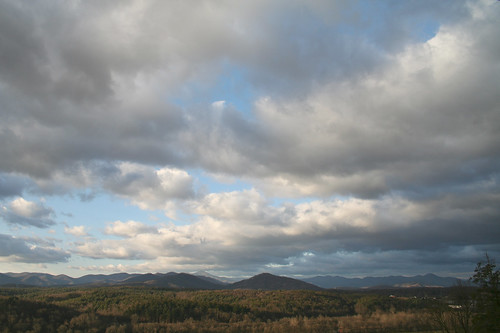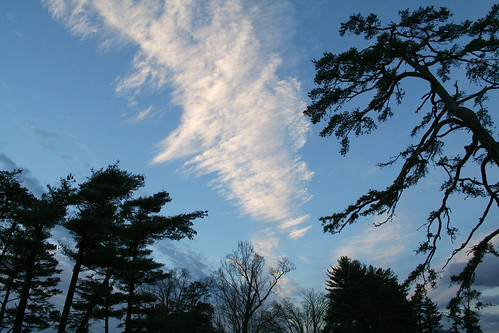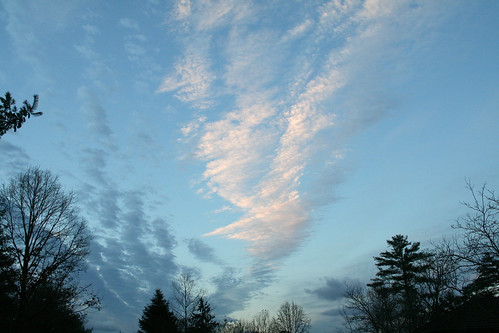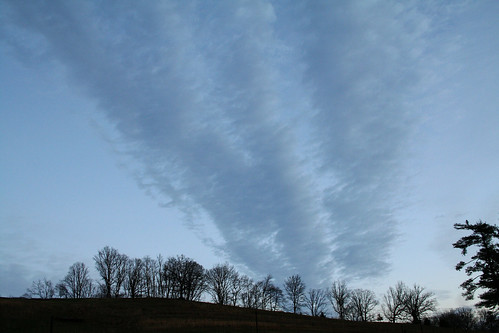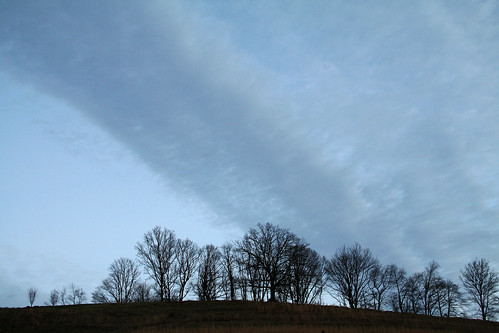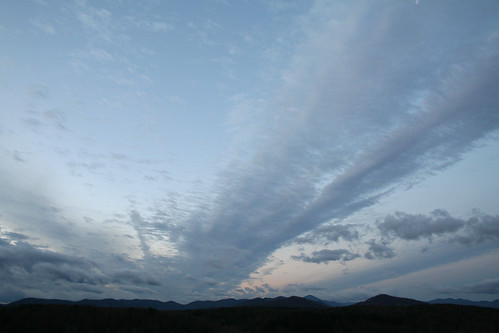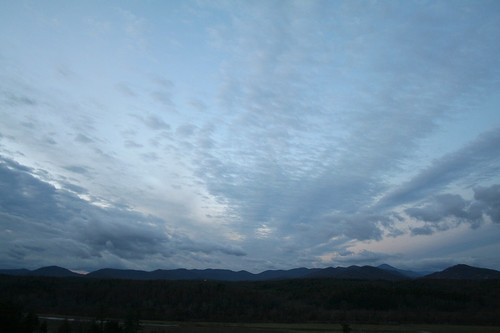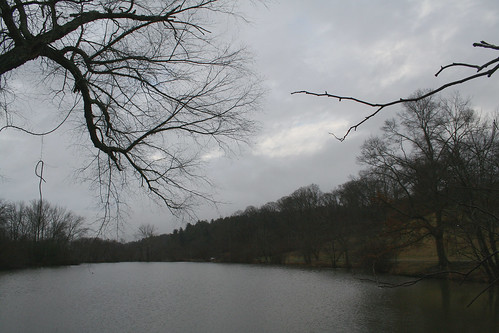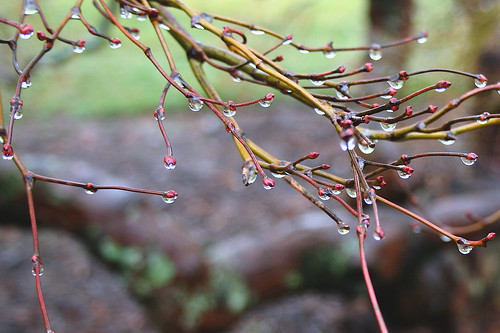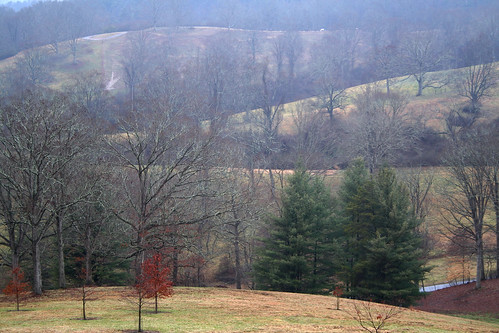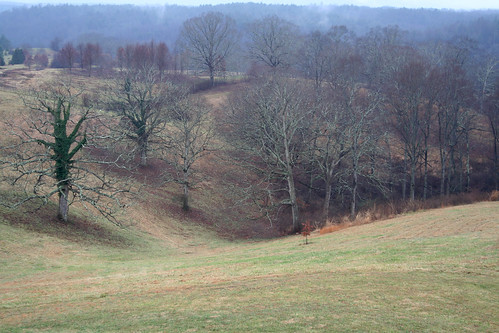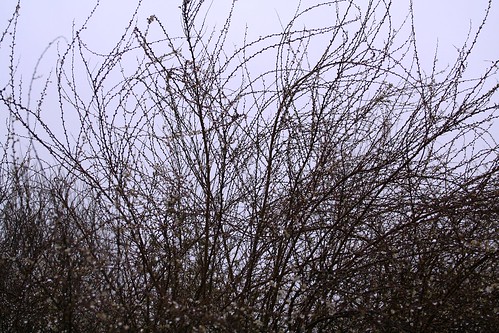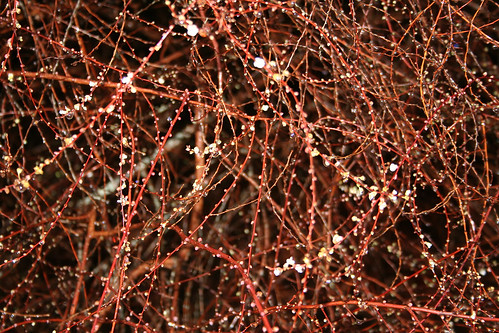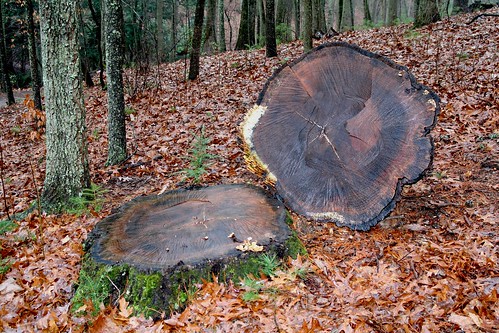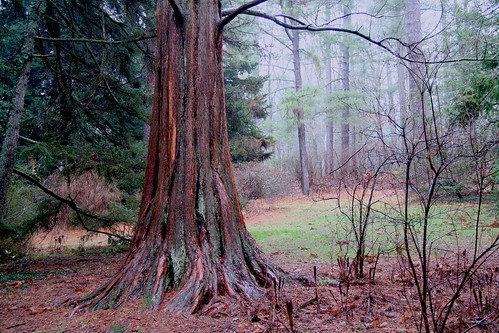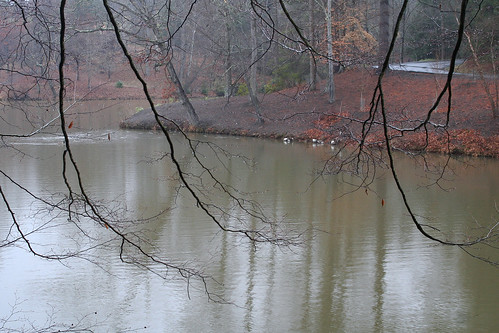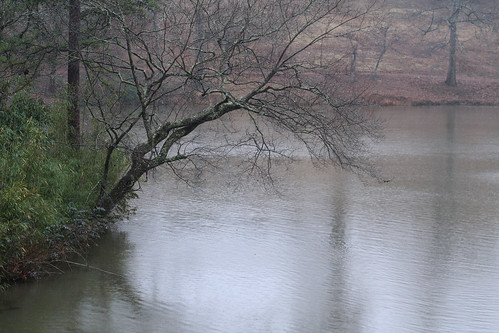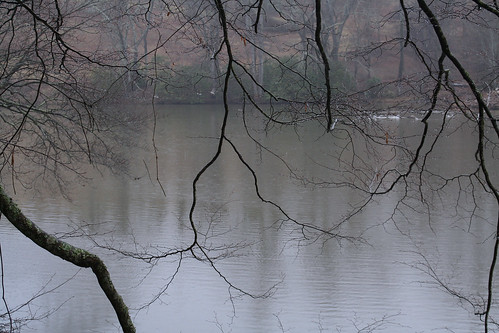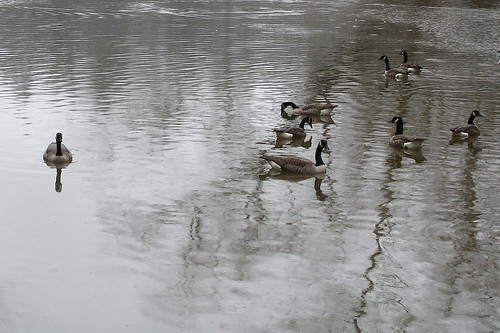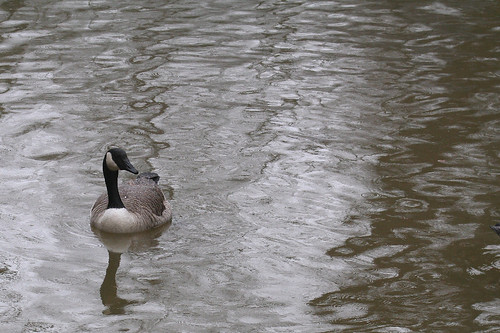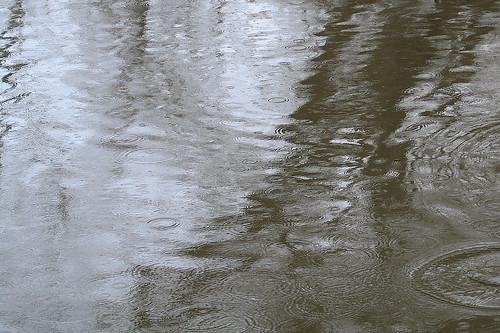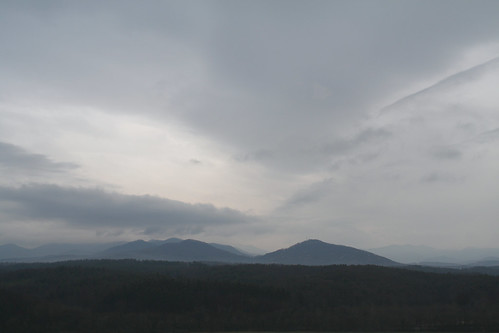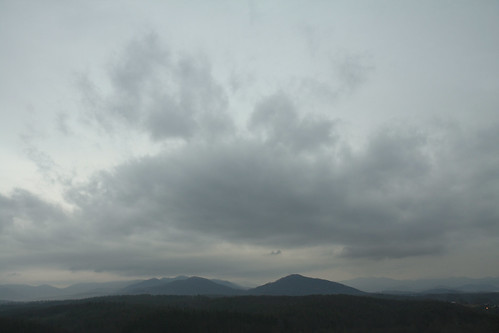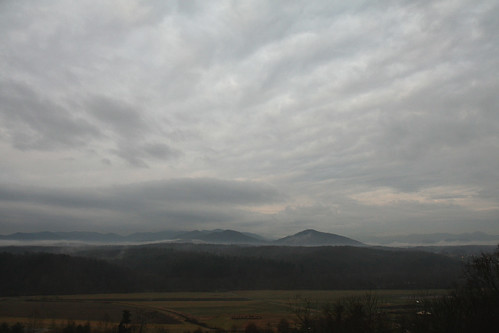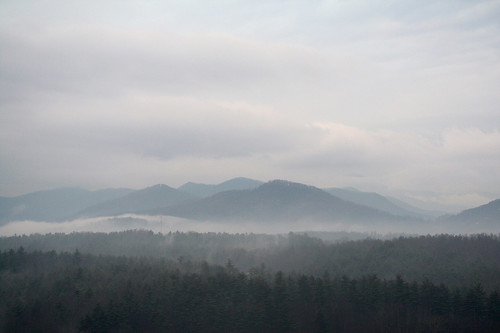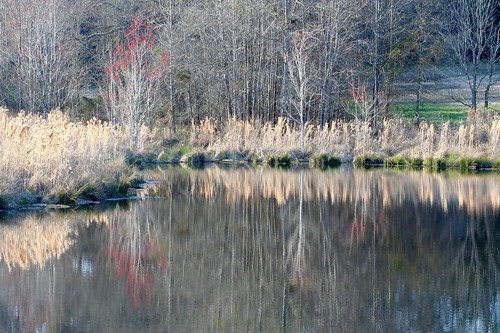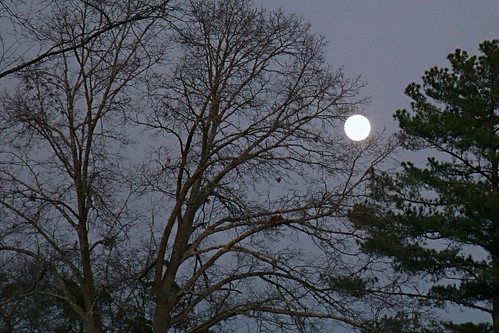Nothing in itself, beauty may be a mental solvent that dissolves something else, melting it into radiance.
-- Peter Schjeldahl, quoted by David Maisel in a conversation with Jörg Colberg here
Wednesday, January 31
nothing in itself
Posted by
rb
at
1/31/2007
![]()
the root of beauty is audacity
You are the blessing in a stride toward perdition,
When living sickens more than sickness does itself;
The root of beauty is audacity,
And that is what draws us to each other
-- Boris Pasternak Doctor Zhivago
Translated by Max Hayward and Manya Harari
Posted by
rb
at
1/31/2007
![]()
Tuesday, January 30
man walking
I saw the sculpture: a wiry, thin person, long legs in full stride, thrust his small, mute head forward into the empty air. Six feet tall, bronze . . .
I saw a stilled figure in a swirl of invisible motion. I saw a touchy man moving through a still void. Here was the thinker in the world--but there was no world, only the abyss through which he walked. Man Walking was pure consciousness made poignant: a soul without a culture, absolutely alone, without even a time, without people, speech, books, tools, work, or even clothes. He knew he was walking, here. He knew he was feeling himself walk; he knew he was walking fast and thinking slowly, not forming conclusions, not looking for anything. He himself was barely there. He was in spirit and in form a dissected nerve. He looked freshly made of clay by God, visibly pinched by sure fingertips . . .
I drew Man Walking in his normal stalking pose and, later, dancing with his arms in the air. What if I fell in love with a man, and he took off his shirt, and I saw he was Man Walking, made of bronze, with Giacometti's thumbprints on him? Well then, I would love him more, for I knew him well; I would hold, if he let me, his twisty head.
-- Annie Dillard An American Childhood
Giacometti's Walking Man II
Posted by
rb
at
1/30/2007
![]()
Monday, January 29
echo
Myth makes Echo the subject of longing and desire. Physics makes Echo the subject of distance and design. ... And where there is no Echo there is no description of space or love.
There is only silence.
-- Mark Danielewski House of Leaves
via delanceyplace
Posted by
rb
at
1/29/2007
![]()
Light Wind
The wind is light and smells of summer rain.
He lies beneath his years, adrift in light,
cooled by wind. The morphine taken for pain
has left him in a pillowed daze. Where night
is caught by day, where light and shadow catch
as wind ruffles cedar and sugar pine,
he thinks he hears rain. In a tear-drop patch
of light across his chest he can count nine
faces he remembers. Then it turns dark
and the faces catch like tufts of cotton
on the ragged fence of his toes. They mark
his body's end. Now he has forgotten
everything but the smell of summer rain
mingled with cedar and sugar pine. Light
it seems can be borne on wind the way pain
can be borne on breath, or a trace of night
on noon's brilliant shimmer. The wind is light.
The wind is summer rain, the breath of years,
a face transformed to memory. The night
has come at last to wash away his tears.
Gone now, leaving only light. Gone, as pain
is gone, and time, and then the sound of rain.
-- Floyd Skloot, from The End of Dreams
Floyd Skloot website
Posted by
rb
at
1/29/2007
![]()
Sunday, January 28
absence and presence
The true content of a photograph is invisible, for it derives from a play, not with form, but with time. One might argue that photography is as close to music as to painting. I have said that a photograph bears witness to a human choice being exercised. This choice is not between photographing x and y: but between photographing at x moment or at y moment. The objects recorded in any photograph (from the most effective to the most commonplace) carry approximately the same weight, the same conviction. What varies is the intensity with which we are made aware of the poles of absence and presence. Between these two poles photography finds its proper meaning. (The most popular use of the photograph is as a memento of the absent.)
-- John Berger The Look of Things
Posted by
rb
at
1/28/2007
![]()
balance
Whenever I walk, my body is interrelated with the world in which and on which I take my steps. This presupposes some harmony between body and world. We know from physics that the earth rises infinitesimally to meet my step, as any two bodies attract each other. The balance essential in walking is one that is not solely in my body; it can be understood only as a relationship of my body to the ground on which it stands and walks. The earth is there to meet each foot as it falls, and the rhythm of my walking depends on my faith that the earth will be there.
-- Rollo May The Courage to Create
Posted by
rb
at
1/28/2007
![]()
Friday, January 26
vacuum cleaner as continuo
I was learning the fugue when suddenly a vacuum cleaner started up beside the piano. Well, the result was that in the louder passages, this luminously diatonic music in which Mozart deliberately imitates the technique of Sebastian Bach became surrounded with a halo of vibrato, rather the effect you might get if you sang in the bathtub with both ears full of water and shook your head from side to side all at once. And in the softer passages I couldn't hear any sound that I was making at all. I could feel, of course -- I could sense the tactile relation with the keyboard which is replete with its own kind of acoustical associations -- and I could imagine what I was doing, but I couldn't actually hear it. But the strange thing was that all of it suddenly sounded better than it had without the vacuum cleaner, and those parts which I couldn't actually hear sounded best of all. Well, for years thereafter, and still today, if I am in a great hurry to acquire an imprint of some new score on my mind, I simulate the effect of the vacuum cleaner by placing some totally contrary noises as close to the instrument as I can. It doesn't matter what noise, really -- TV westerns, Beatles records; anything loud will suffice -- because what I managed to learn through the accidental coming together of Mozart and the vacuum cleaner was that the inner ear of the imagination is very much more powerful a stimulant than is any amount of outward observation.
-- Glenn Gould, quoted in "Vacuum Cleaner as Continuo" (included in liner notes for this CD) by Michael Stegemann
Translated by Gery Bramall
Posted by
rb
at
1/26/2007
![]()
Thursday, January 25
as with all art
So long as you write what you wish to write, that is all that matters; and whether it matters for ages or only for hours, nobody can say. But to sacrifice a hair of the head of your vision, a shade of its colour, in deference to some Headmaster with a silver pot in his hand or to some professor with a measuring-rod up his sleeve, is the most abject treachery.
-- Virginia Woolf A Room of One's Own
more
happy birthday virginia!
Posted by
rb
at
1/25/2007
![]()
Wednesday, January 24
It is not so much that we are going back in time as that time seems circular, and past and future have lost meaning. I understand much better now Einstein's remark that the only real time is that of the observer, who carries with him his own time and space. In these mountains, we have fallen behind history.
-- Peter Matthiessen The Snow Leopard
Posted by
rb
at
1/24/2007
![]()
Mystique
On the side of the slope, angels revolving
Their dresses of wool, in fields of emerald and steel.
Flames shoot out of meadows, to the top of the hill.
To the left, the face of the ascent is pitted
By all homicides and every battle,
And the sounds of disaster string out on a curve.
Behind the ascent on the right, the orient line of progression.
And while this band in the distance
Is made of the whirling, leaping sounds
Of conch shells and human nights,
The flowery softness of the stars and all the sky
Flows over the side of the slope
Like a basket poured out in our face,
And turns the abyss beneath us a flowering blue.
-- Arthur Rimbaud
Translated by Paul Schmidt
original here
Posted by
rb
at
1/24/2007
![]()
Tuesday, January 23
A picture is something that makes invisible its before and after.
-- Jeff Wall
A conversation with Jeff Wall
Posted by
rb
at
1/23/2007
![]()
the coinage of reason
"There you are!" he cried at her, half angrily. "Your words are empty to me. There is nothing clear and sharp and definite about the thought you have expressed. You cannot pick it up in your two hands and look at it. In point of fact, it is not a thought. It is a feeling, a sentiment, a something based upon illusion and not a product of the intellect at all."
As he went on his voice again grew soft, and a confiding note came into it. "Do you know, I sometimes catch myself wishing that I, too, were blind to the facts of life and only knew its fancies and illusions. They're wrong, all wrong, of course, and contrary to reason; but in the face of them my reason tells me, wrong and most wrong, that to dream and live illusions gives greater delight. And after all, delight is the wage for living. Without delight, living is a worthless act. To labor at living and be unpaid is worse than to be dead. He who delights the most lives the most, and your dreams and unrealities are less disturbing to you and more gratifying than are my facts to me."
He shook his head slowly, pondering.
"I often doubt, I often doubt, the worthwhileness of reason. Dreams must be more substantial and satisfying. Emotional delight is more filling and lasting than intellectual delight; and besides, you pay for your moments of intellectual delight by having the blues. Emotional delight is followed by no more than jaded senses which speedily recuperate. I envy you, I envy you."
He stopped abruptly, and then on his lips formed one of his strange quizzical smiles, as he added:
"It's from my brain I envy you, take notice, and not from my heart. My reason dictates it. The envy is an intellectual product. I am like a sober man looking upon drunken men, and, greatly weary, wishing he, too, were drunk."
"Or like a wise man looking upon fools and wishing he, too, were a fool," I laughed.
"Quite so," he said. "You are a blessed, bankrupt pair of fools. You have no facts in your pocketbook."
"Yet we spend as freely as you," was Maud Brewster's contribution.
"More freely, because it costs you nothing."
"And because we draw upon eternity," she retorted.
"Whether you do or think you do, it's the same thing. You spend what you haven't got, and in return you get greater value from spending what you haven't got than I get from spending what I have got, and what I have sweated to get."
"Why don't you change the basis of your coinage, then?" she queried teasingly.
He looked at her quickly, half-hopefully, and said, all regretfully: "Too late. I'd like to, perhaps, but I can't. My pocketbook is stuffed with the old coinage, and it's a stubborn thing. I can never bring myself to recognize anything else as valid."
He ceased speaking, and his gaze wandered absently past her and became lost in the placid sea. The old primal melancholy was strong upon him. He was quivering to it. He had reasoned himself into a spell of the blues, and within few hours one could look for the devil within him to be up and stirring. I remembered Charley Furuseth, and knew this man's sadness as the penalty which the materialist ever pays for his materialism.
-- Jack London The Sea Wolf
Posted by
rb
at
1/23/2007
![]()
Friday, January 19
somewhere inbetween
I began to catch glimpses of mysterious depths. Boundaries of separate objects lifted and opened, the land seemed charged with potent force and magic, alive and moving . . . To penetrate . . . that which takes place in, over, under, around, and through nature, is to feel the intangible, the somewhere inbetween, the what is and the what I am, the interaction between visible and invisible.
-- Paul Caponigro Landscape
Paul Caponigro (with gallery)
Posted by
rb
at
1/19/2007
![]()
Thursday, January 18
a thing to be remembered
Poetry is concerned with using with abusing, with losing with wanting, with denying with avoiding with adoring with replacing the noun. It is doing that always doing that, doing that and doing nothing but that. Poetry is doing nothing but using losing refusing and pleasing and betraying and caressing nouns. That is what poetry does, that is what poetry has to do no matter what kind of poetry it is. And there are a great many kinds of poetry.
When I said.
A rose is a rose is a rose is a rose.
And then later made that into a ring I made poetry and what did I do I caressed completely caressed and addressed a noun.
Now let us think of poetry any poetry all poetry and let us see if this is not so. Of course it is so anybody can know that.
I have said that a noun is a name of anything by definition that is what it is and a name of anything is not interesting because once you know its name the enjoyment of naming it is over and therefore in writing prose names that is nouns are completely uninteresting. But and that is a thing to be remembered you can love a name and if you love a name then saying that name any number of times only makes you love it more, more violently more persistently more tormentedly. Anybody knows how anybody calls out the name of anybody one loves. And so that is poetry really loving the name of anything and that is not prose. Yes any of you can know that.
-- Gertrude Stein, from "Poetry and Grammar" Lectures in America
more here
Posted by
rb
at
1/18/2007
![]()
Wednesday, January 17
the dreamy blue haze
Characteristic, too, is the dreamy blue haze, like that of Indian summer intensified, that ever hovers over the mountains, unless they be swathed in cloud, or, for a few minutes, after a sharp rain-storm has cleared the atmosphere. Both the Blue Ridge and the Smoky Mountains owe their names to this tenuous mist. It softens all outlines, and lends a mirage-like effect of great distance to objects that are but a few miles off, while those farther removed grow more and more intangible until finally the sky-line blends with the sky itself.
The foreground of such a landscape, in summer, is warm, soft, dreamy, caressing, habitable; beyond it are gentle and luring solitudes; the remote ranges are inexpressibly lonesome, isolated and mysterious; but everywhere the green forest mantle bespeaks a vital present; nowhere does cold, bare granite stand as the sepulchre of an immemorial past.
-- Horace Kephart Our Southern Highlanders
Posted by
rb
at
1/17/2007
![]()
Tuesday, January 16
alla sera
And when from the snowy air
Upon the world you cast
Shadows unquiet and long
You always fall invoked, to lay a gentle hand
Upon my heart and its secret ways.
You force me to roam in thought on paths
That lead to eternity and the void, while
The felon time flees, and with him the hordes
Of cares that consume us both;
And as I look upon your peace, the soul
Of that warrior spirit within me slumbers.
-- Ugo Foscolo, from Alla sera (To Evening)
Translated by Alastair McEwen
original here
Posted by
rb
at
1/16/2007
![]()
Monday, January 15
on shapes:
They are unique elements in a unique situation.
They are organisms with volition and a passion for self-assertion.
They move with internal freedom, and without need to conform with or to violate what is probable in the familiar world.
They have no direct association with any particular visible experience, but in them one recognizes the principle and passion of organisms.
-- Mark Rothko Possibilities no. 1 (Winter 1947-1948)
Posted by
rb
at
1/15/2007
![]()
Sunday, January 14
Adagio
Third Movement from Feierliche Abendmusik (Holiday Music in the Evening)
A dream gives what the day wore out;
At night, when the conscious will surrenders,
Some powers, set free, reach upward,
Sensing something godly, and following.
The woods rustle, and the stream, and through the night blue sky
Of the quick soul, the summer lighting blows.
The world and my self, everything
Within and without me, grows into one.
Clouds drift through my heart,
Woods dream my dream,
House and pear tree tell me
The forgotten story of common childhood.
Streams resound and gorges cast shadows in me,
The moon, and the faint star, my close friends.
But the mild night,
That bows with its gently clouds above me,
Has my mother's face,
Kisses me, smiling, with inexhaustible love,
Shakes her head dreamily
As she used to do, and her hair
Waves through the world, and within it
The thousand stars, shuddering, turn pale.
-- Hermann Hesse
Translated by James Wright
Posted by
rb
at
1/14/2007
![]()
For me at least, one of the most rewarding emotions is that of feeling in the presence of someone whom I admire wholeheartedly and from whom I know I can learn. It is a very pure emotion. There is no envy in it, nothing but aspiration. The reward is in the feeling itself.
-- May Sarton At Seventy
Posted by
rb
at
1/14/2007
![]()
Saturday, January 13
Allegro
Samuel Barber's Concerto for Violin and Orchestra, Op. 14
The opening is magical. Does any other violin concerto begin with such immediacy and with so sweet and elegant a melody? A rolled G-major chord on the piano ushers it in. The melody itself belongs to the solo violin, and it stretches its deliciously unpredictable way through twenty-four measures. If you go along with the idea that some composers are essentially vocal composers (Mozart) and some essentially instrumental (Beethoven), allowing room for the possibility that some are both (Bach), then Barber was as surely a vocal composer by nature--and here, like Mozart, he is composing vocal music for an instrument. Barber himself, I should add, thought of himself as musically "bisexual" (his adjective): "I do both." Two more themes appear, both introduced by the violin: one is lightly touched by melancholia, the other is grazioso e scherzando. The development begins with a surprising darkening of the scene. Toward the end, Barber gives us at least a hint of a cadenza . . .
-- Michael Steinberg The Concerto
Posted by
rb
at
1/13/2007
![]()
Friday, January 12
(art comes) out of nothing
To discover an order as of
A season, to discover summer and know it,
To discover winter and know it well, to find
Not to impose, not to have reasoned at all,
Out of nothing to have come on major weather,
It is possible, possible, possible. It must
Be possible. It must be that in time
The real will from its crude compoundings come,
Seeming at first, a beast disgorged, unlike,
Warmed by a desperate milk. To find the Real,
To be stripped of every fiction except one,
The fiction of an absolute—-Angel,
Be silent in your luminous cloud and hear
The luminous melody of proper sound.
-- Wallace Stevens, from Notes Toward a Supreme Fiction
more
Posted by
rb
at
1/12/2007
![]()
Thursday, January 11
one spot near the window
We are solitary. We can delude ourselves about this and act as if it were not true. That is all. But how much better it is to recognize that we are alone; yes, even to begin from this realization. It will, of course, make us dizzy; for all points that our eyes used to rest on are taken away from us, there is no longer anything near us, and everything far away is infinitely far. A man taken out of his room and, almost without preparation or transition, placed on the heights of a great mountain range, would feel something like that: an unequalled insecurity, an abandonment to the nameless, would almost annihilate him. He would feel he was falling or think he was being catapulted out into space or exploded into a thousand pieces: what a colossal lie his brain would have to invent in order to catch up with and explain the situation of his senses. That is how all distances, all measures, change for the person who becomes solitary; many of these changes occur suddenly and then, as with the man on the mountaintop, unusual fantasies and strange feelings arise, which seem to grow out beyond all that is bearable. But it is necessary for us to experience that too. We must accept our reality as vastly as we possibly can; everything, even the unprecedented, must be possible within it. This is in the end the only kind of courage that is required of us: the courage to face the strangest, most unusual, most inexplicable experiences that can meet us . . . But the fear of the inexplicable has not only impoverished the reality of the individual; it has also narrowed the relationship between one human being and another, which has as it were been lifted out of the riverbed of infinite possibilities and set down in a fallow place on the bank, where nothing happens. For it is not only indolence that causes human relationships to be repeated from case to case with such unspeakable monotony and boredom; it is timidity before any new, inconceivable experience, which we don't think we can deal with. But only someone who is ready for everything, who doesn't exclude any experience, even the most incomprehensible, will live the relationship with another person as something alive and will himself sound the depths of his own being. For if we imagine this being of the individual as a larger or smaller room, it is obvious that most people come to know only one corner of their room, one spot near the window, one narrow strip on which they keep walking back and forth.
-- R.M. Rilke Letters to a Young Poet
Translated by Stephen Mitchell
Posted by
rb
at
1/11/2007
![]()
Saturday, January 6
Driven by the forces of love, the fragments of the world seek each other so that the world may come to being.
-- Pierre Teilhard de Chardin The Future of Man
Translated by Norman Denny
Posted by
rb
at
1/06/2007
![]()
Friday, January 5
I feel that the only thing that really matters in art and life is to go against the tidal wave of literalism and literal-mindedness to insist on and live the life of the imagination. A painting has to be the experience instead of pointing to it. I want to have and give access to feeling. That is the riskiest and only important way to connect art to the world -- to make it alive. The rest is just current events.
-- David Salle, quoted by Anne Bogart in A Director Prepares
Posted by
rb
at
1/05/2007
![]()
Thursday, January 4
Wednesday, January 3
they watch each other
We went for a walk together, the walk into the forest he would take each morning. I asked him why in the first volume of his memoirs he wrote in several distinctly different styles.
'Each style belongs to a different person.'
'To a different aspect of yourself?'
'No, rather it belongs to a different self.'
'Do these different selves coexist, or, when one is predominant, are the others absent?'
"They are present together at the same time. None can disappear. The two strongest are my violent, hot, extremist, romantic self and the other my distant, sceptical self.'
'Do they discourse together in your head?'
'No.' (He had a special way of saying No. As if he had long ago considered the question at length and after much patient investigation had arrived at the answer.)
'They watch each other,' he continued. 'The sculptor Hrdlicka has done a head of me in marble. It makes me look much younger than I am. But you can see these two predominant selves in me -- each corresponding to a side of my face. One is perhaps a little like Danton, the other a little like Voltaire.'
As we walked along the forest path, I changed sides so as to examine his face, first from the right and then from the left. Each eye was different and was confirmed in its difference by the corner of the mouth on each side of his face. The right side was tender and wild . . . I thought rather of an animal: perhaps a kind of goat, light on its feet, a chamois maybe. The left side was sceptical but harsher: it made judgments but kept them to itself, it appealed to reason with an unswerving certainty. The left side would have been inflexible had it not been compelled to live with the right. I changed sides again to check my observations.
'And have their relative strengths always been the same?' I asked.
'The sceptical self has become stronger,' he said. 'But there are other selves too.' He smiled at me and took my arm and added, as though to reassure me: 'Its hegemony is not complete!'
He said this a little breathlessly and in a slightly deeper voice than usual -- in the voice in which he spoke when moved, for example when embracing a person he loved.
-- John Berger, on Ernst Fischer The Sense of Sight
Posted by
rb
at
1/03/2007
![]()
Tuesday, January 2
Monday, January 1
Primero de Enero (January First)
The doors of the year open,
like the doors of language,
onto the unknown.
Last night you said:
tomorrow
we must draw signs,
sketch a landscape, hatch a plot
on the unfolded page
of paper and the day.
Tomorrow we must invent,
anew,
the reality of this world.
When I opened my eyes it was late.
For a second of a second
I felt like the Aztec
on the rock-strewn peak,
watching
the cracks of horizons
for the uncertain return of time.
No, the year came back.
It filled the room,
and my glances could almost touch it.
Time, without our help,
had arranged
in the same order as yesterday,
the houses on the empty street,
the snow on the houses,
the silence on the snow.
You were beside me,
still sleeping.
The day had invented you,
but you hadn't yet accepted
your day's invention,
nor mine.
You were still in another day.
You were beside me,
and I saw you, like the snow,
asleep among the appearances.
Time, without our help,
invents houses, streets, trees,
sleeping women.
When you open your eyes
we'll walk, anew,
among the hours and their inventions,
and lingering among the appearances
we'll testify to time and its conjugations.
We'll open the doors of this day,
and go into the unknown.
-- Octavio Paz
Translated by Eliot Weinberger
Posted by
rb
at
1/01/2007
![]()
